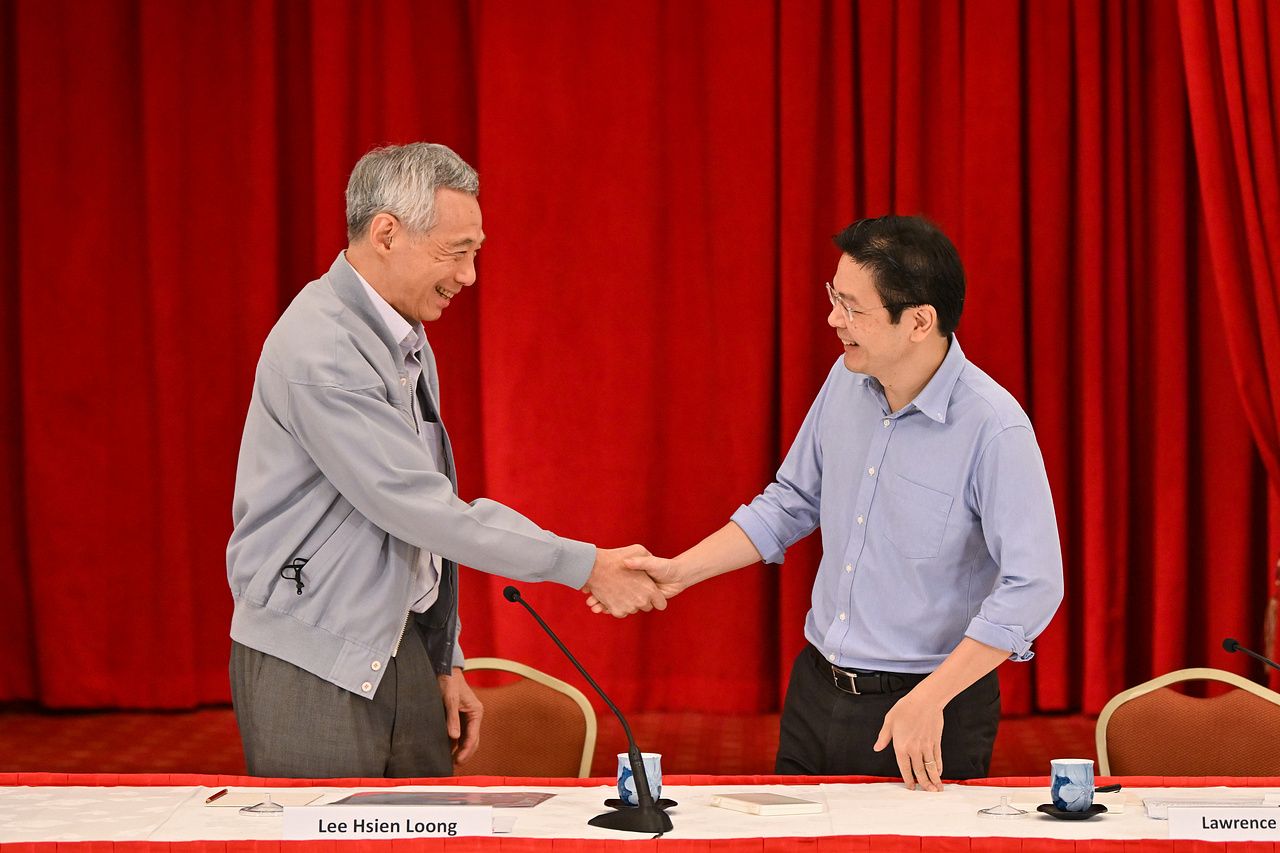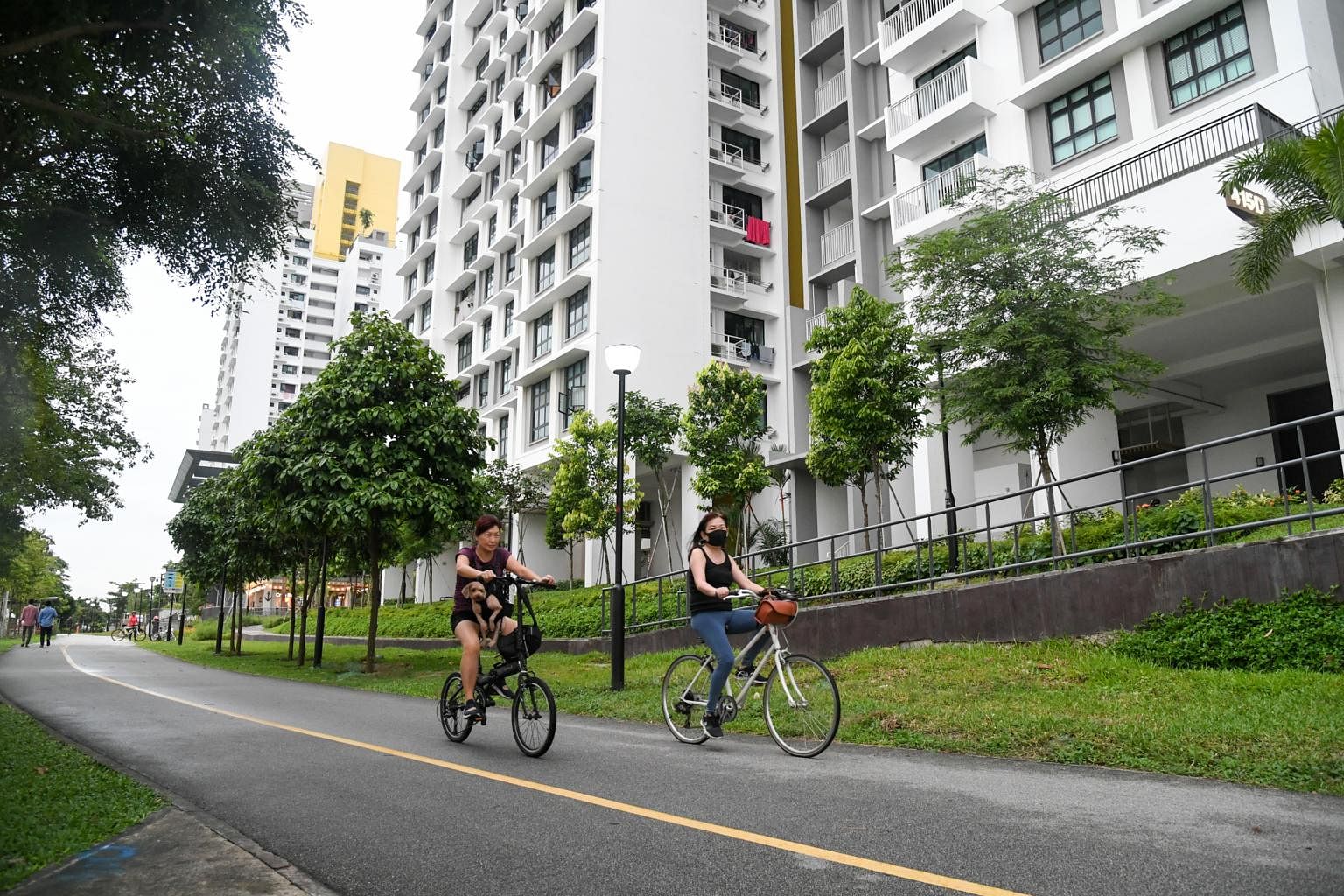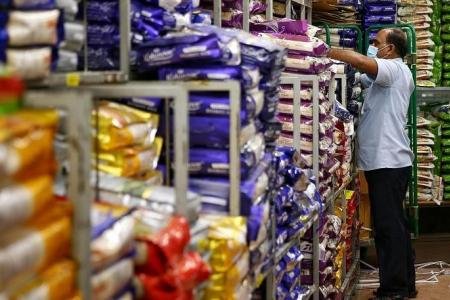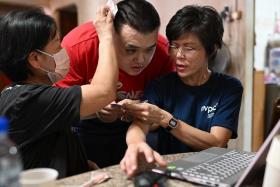10 key points on Sinaporeans' minds: IPS survey
One hopes it does not happen, but should there be another pandemic, Singapore is well prepared and ready to take it on.
About 64 per cent of Singaporeans feel this way, based on the city-state's performance dealing with Covid-19, according to recent research.
The same study also found that cost of living - in particular, in areas of healthcare, utilities and food - ranks among the top worries of Singaporeans as the country moves forward from the Covid-19 pandemic.
When asked what the country's focus should be for the future, Singaporeans were very pragmatic, opting to focus on immediate livelihood needs such as support to cope with the rise in goods and services tax (GST) over longer-term concerns such as the green transition, said the study.
These were among the key findings noted in a working paper on moving forward through the Covid-19 pandemic by the Institute of Policy Studies that was released on Thursday (July 14).
The study also asked Singaporeans about their behaviour in the new normal as the country moves towards endemic living, such as if they would wear their masks outdoors, and if they planned to travel for leisure in the upcoming months.
The study was based on online surveys that drew on more than 2,000 respondents who were representative of Singapore's gender and race demographics. About 500 were polled about once every fortnight from April 2020 to June 2022, with 51 polls used in the study.
Here are 10 key takeaways from the study:
1. Coping with rising cost of living
- More than four in 10 were rather or very worried about the cost of healthcare (45 per cent), cost of utilities (41 per cent) and cost of food (40 per cent) possibly rising this year.
- On the topic of the GST, which is set to increase by two percentage points by 2024 to 9 per cent, the proportion polled who were rather or very worried about the hike declined slightly from 54 per cent for those polled from March 18 to 25 this year to 47 per cent for those polled from June 24 to July 4.
- About six in 10 (59 per cent) said their families have adjusted spending habits in order to reduce expenses to cope with the rise in prices.
2. Immediate needs should be Singapore's focus post-pandemic
- Respondents said post-pandemic Singapore should focus on providing support to Singaporeans to cope with the rise in GST (48 per cent); and providing immediate financial support to households to cope with daily expenses, utilities and education expenses, and supporting children from disadvantaged families through programmes (45 per cent).
- They also focused on the need to provide immediate support for businesses, such as by supporting those affected most by Covid-19, and encouraging employers to hire Singaporeans through the Jobs Growth Incentive (44 per cent).
3. Six in 10 say Lawrence Wong is best choice among 4G
In April this year, Prime Minister Lee Hsien Loong announced that Finance Minister Lawrence Wong - who took on the role of deputy prime minister on June 13 - would lead the People's Action Party's fourth generation (4G) team, paving the way for Mr Wong to be his eventual successor.
Respondents answered the following after the announcement was made:
- Around six in 10 said they trusted that the Singapore Government has the best possible 4G leader to navigate divisions within the society (60 per cent), to navigate Singapore's dealing with other countries (59 per cent) and to help it navigate post-Covid-19 economic recovery (57 per cent).

4. Confidence in dealing with the next pandemic
- Around 64 per cent of respondents were confident that Singapore is well prepared to face the next pandemic, based on its performance dealing with the Covid-19 pandemic.
- Of those with better psychological well-being, 75 per cent felt confident that Singapore is well prepared to face the next pandemic, while of those with lower psychological well-being, only 52 per cent felt similarly.
- Of those who had a more positive job market outlook, 82 per cent felt confident, while of those with a negative outlook, only 46 per cent felt so.
5. New habits likely to stick
- The more popular habits respondents picked up during the pandemic were cooking at home frequently (38 per cent), exercising regularly (36 per cent) and prioritising personal hygiene (32 per cent).
- More than 90 per cent of the respondents indicated that they would continue with these habits after the pandemic.

6. Mask-wearing the new normal
Respondents were asked in March to June 2022 about behaviours in the new normal.
- One in four said they would not remove their masks outdoors at all times, even if it was not humid or crowded, while 20 per cent said they would remove their mask outdoors all the time.
- About half (56 per cent) did not find it inconvenient at all or only a little inconvenient to wear mask in indoor spaces, even at the workplace.
7. On tracing, testing and travel
- About 55 per cent said it was not inconvenient or only a little inconvenient to keep contact tracing apps active in their phones' background or to take contact tracing devices out with them. Twenty-six per cent said it was totally inconvenient or inconvenient to do so.
- About 40 per cent of employed and self-employed individuals said they did not find it inconvenient or only a little inconvenient to take regular antigen rapid tests as part of workplace safe management measures.
- Nearly half (48 per cent) said they were planning to travel for leisure within the next six months, while 46 per cent said they were not planning to travel within the next six months.
8. Ensuring supplies, preparedness among lessons learnt
The top three lessons that respondents felt Singapore should learn from the pandemic and improve on were:
- Be self-sufficient and ensure that essential services and supplies are always available (45 per cent).
- Have strong finances, healthcare and other systems in place to deal with the next crisis (44 per cent).
- Be prepared for an unexpected crisis and never be complacent (38 per cent).
9. Resilience of institutions ranks high
- Of the lessons learnt, those that were related to institutional resilience appeared to be more important to respondents, according to the study.
- Lessons pertaining to institutional resilience were more likely to be prioritised by older respondents, while lessons pertaining to social resilience were more likely to be emphasised by younger respondents.
- Researchers said older respondents may be more pragmatic, and their responses may be reflective of the times they grew up in when there was a survivalist mentality. Younger ones may be more attuned to social issues, having grown up in a time with relative stability in governance and greater emphasis on social cohesion issues.
10. Younger people took larger hit to mental health
- Younger respondents aged 21 to 29 as well as middle-aged respondents aged 40 to 49 experienced declining mental or emotional health than other age groups.
- Young people may be worried about their life choices amid an uncertain future or stressed from fledgling careers, while middle-aged respondents may be facing considerable financial pressures to support the old and the young amid job disruptions and the rising cost of living, said the study.
Get The New Paper on your phone with the free TNP app. Download from the Apple App Store or Google Play Store now


